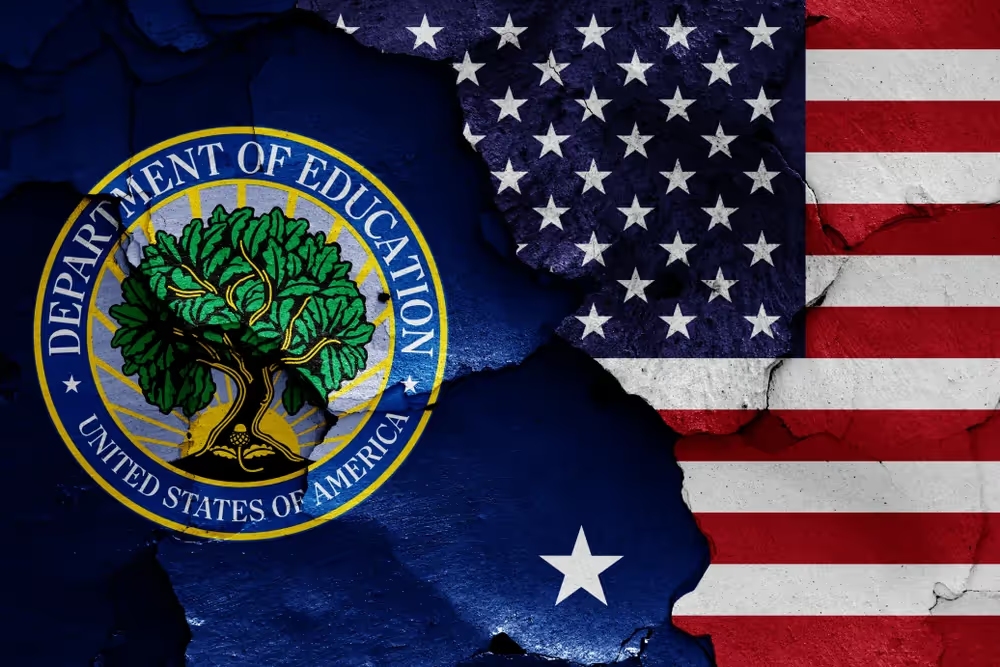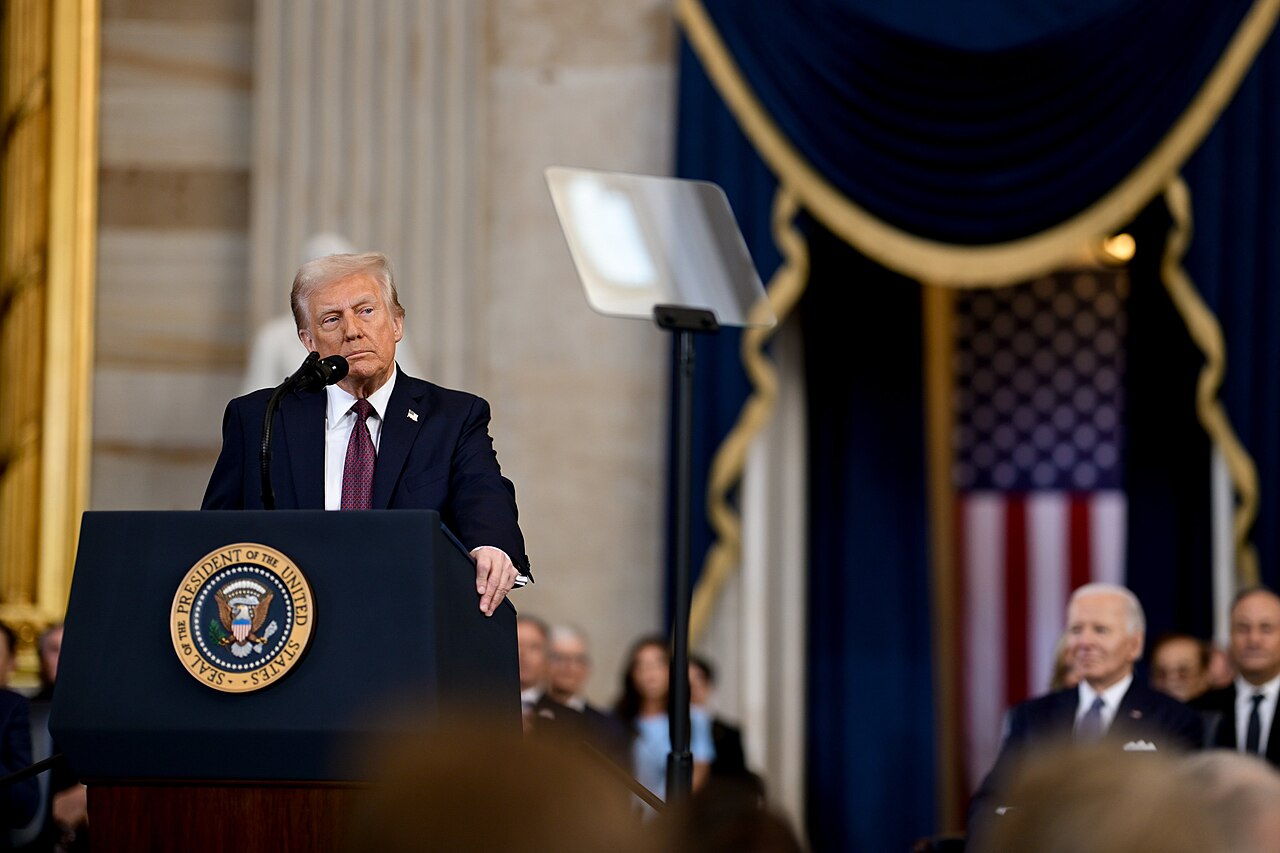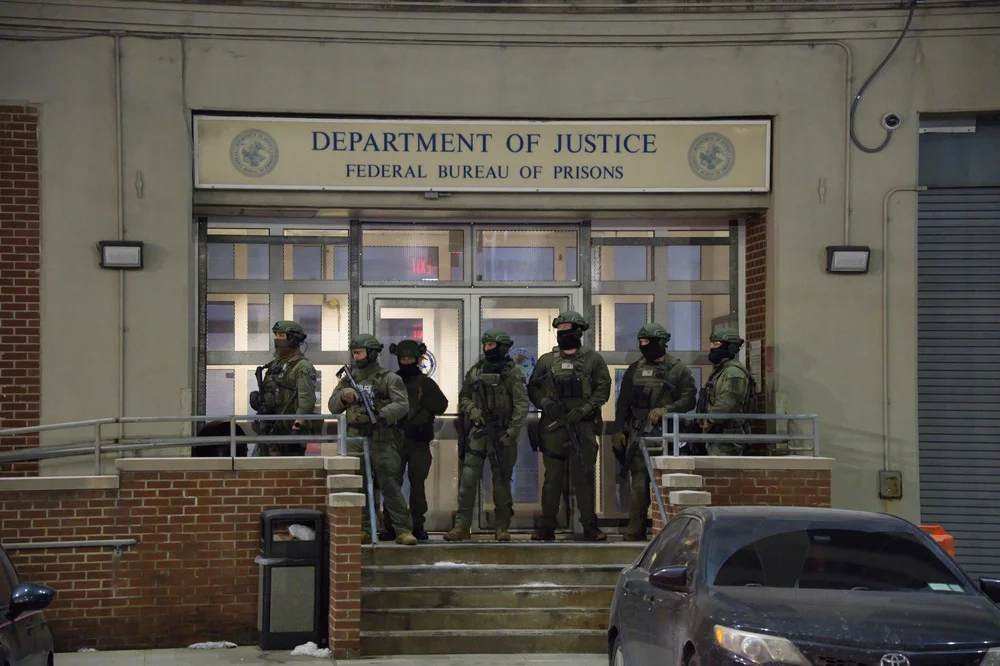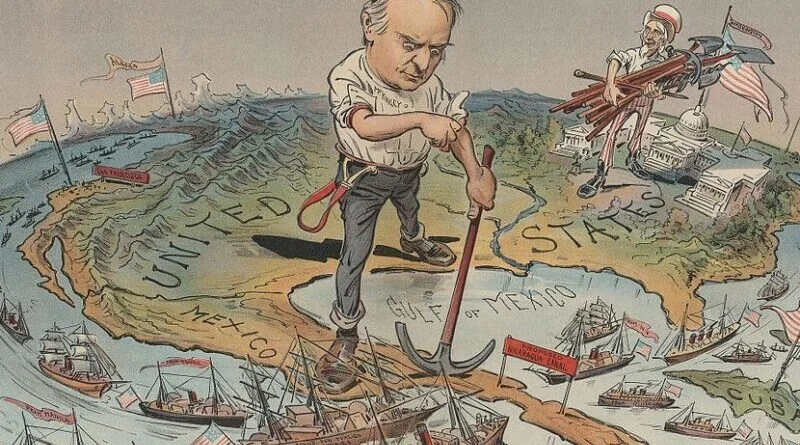
Closing DOE, Funding Federal School Choice
We should use the savings from closing DOE to fund a national school choice program rather than award new block grants to states.
There is every indication that the president’s plan to eliminate the Department of Education (DOE) is neither a political stunt nor a bargaining ploy. His base wants this, and he appears to believe it is the right thing for the country.
What is not yet settled, however, is what to do with the savings. Much of it will be tied up for years due to obligations that will outlive DOE. But about $100 billion of the DOE’s annual budget of $270 billion appears to be on a path to funding block grants to the states. Momentum for this approach is growing. But while block grants might be politically expedient, a much better use of this money would be to create a national school choice program.
The primary appeal of block grants to the states is that they appear to be a step toward greater local control over education dollars. Conservatives and many libertarians have long preached the virtues of local control.
Unfortunately, local control in American public K-12 education is now primarily a fantasy. Through massive campaign contributions, teachers’ unions have pushed their agendas across all schools, school districts, and states. Local control ultimately becomes meaningless, as there are no viable local options to switch to, since every other public school district and every other school within any given district also has its policies in lockstep with those of teachers’ unions.
The fact that parents can vote on local school board members is largely rendered moot by the reality that, unless a truly outrageous issue is at play (e.g., the transgender restrooms), most school board candidates depend on teachers’ unions for endorsements, so they all end up supporting similar issues. Local control, therefore, ends up only being meaningful for parents who can afford to pay private school tuition on top of property taxes.
The growing influence of teachers’ unions over education policies has resulted in policies that are beneficial for teachers but detrimental to students having a good chance of being adopted. In contrast, policies that are beneficial for students but detrimental to teachers have a poor chance. There is little doubt that this systematic bias helps explain the largely unabated accumulation of ineffective ideas in American K-12 education
Homeschooling during the COVID era allowed many parents to gain insight into what their children were being taught. The result was that a great deal of trust in our educational institutions melted away. Despite reprehensible efforts to suppress parental protests concerning various policies, there has been a welcome change in parental engagement in school board elections and meetings. At the same time, some kind of school choice is available in at least 29 states, and state-wide school choice is available in 12 states.
All this momentum has boosted parental morale, which, in turn, has positively impacted parental involvement. While calls to eliminate the DOE used to be made mostly on the far right, after the COVID era, these calls are now more widespread. DOE has become an easy target. But one should not eliminate something without a plan for what comes after.
That question is best answered by first understanding what went wrong. Although the DOE is officially non-partisan and has strong constraints against getting into curricular content issues, only the very naïve believe it cannot exert ideological influence over American higher education. So, what was influencing DOE? One such influence was the determined efforts of teachers’ unions to control the policies that flow out of the DOE. Unfortunately, eliminating the DOE will not eliminate the teachers’ unions themselves.
Many in red states who favor the elimination of DOE are particularly offended by the left-wing radicalization of education policies and curricular content. But the DOE was fastidiously crafted to avoid matters of curricular content. No one believes this laudable constraint was achieved perfectly, of course. State-level education bureaucracies have no such constraint on curricular content. With new federal block grants, state-level education bureaucracies will have additional resources to promote the agendas of the interest groups, like teachers’ unions, that influence them.
Block grants won’t make California less blue or Wyoming less red. Instead, block grants will allow both blue and red states to push their curricula further in their state’s existing ideological direction. This will inevitably increase the cultural and political divide between blue and red states, further stoking the flames of political tribalism. Nearly everyone agrees that American politics has gotten too divisive, so we should think twice about doing anything that might further divide us.
This is why we should use the savings from closing DOE to fund a national school choice program rather than award new block grants to states. Control over the money would go to the parents of students, not state government education bureaucracies that are often even more fully captured by teachers’ union influence than the DOE was. Parents are not beholden to anyone or anything for campaign contributions; most simply want the best education they can provide for their children. That should be the nation’s goal, too.
Some issues are national, so addressing them at the federal level is appropriate. I live in Missouri, but the academic and civic competency of children in California affects me, too, because the president and the federal laws I end up with are determined, in part, by the wisdom of California voters.
All Americans should therefore want all American children to be educated in a system in which competition does for education what it has done so well for so long for most other parts of our society. Like most Americans, I trust California’s parents’ judgments more than I trust California’s government, which ignores special interest groups like teachers’ unions at its peril.
Competition improves efficiency and generates new ideas. New ideas that produce worse outcomes are quickly discarded, while others adopt those that produce better outcomes. But when organizations can protect themselves from criticism by pointing to having followed federal or state-level recommendations, standards, or regulations, the competitive process that fertilizes and prunes innovation is suffocated.
Education choice does just the opposite. Schools and their districts thrive by getting ahead; the best way to get ahead is to give parents what they want. There are differences among children and parents, so schools will specialize for the same reason that grocery stores and restaurants do. Some parents might not want specialization, so some schools will tout that they don’t specialize. No one knows precisely how each school should teach or how many of each kind of school there should be, because no one can know. But we know that market forces tend to drive behavior in desirable directions under honest competition.
Although there is not nearly enough money for a fully funded federal school choice program, a central lesson of economics is that even a small amount of pressure at the margin can produce significant results. Schools will immediately start thinking about how to attract and retain parents whom they used to be able to take entirely for granted.
The symbolism of this vivid policy pivot would be significant. Now, every child in America would benefit from school choice, not just those fortunate enough to be wealthy or live in states that already generously support school choice. It would also signal to every American, and even the world, that America values school choice. This would familiarize parents in non-choice states with the benefits of choice, leading to political pressure for more states to adopt choice.
Every American should be concerned about the academic and civic competency of all American children because a sustainable democracy requires it. For the first time, the federal government could use its might to help every child benefit from the most localized control that can possibly exist: all parents having more ability to decide which school their child attends.
David C. Rose is Senior Research Fellow at the American Institute for Economic Research, Professor Emeritus of Economics at the University of Missouri-St. Louis, and a member of the Missouri Advisory Committee of the US Commission on Civil Rights. He can be followed on @DCRose1776.
Politics
.webp)
Liberal Democracy Reexamined: Leo Strauss on Alexis de Tocqueville
This article explores Leo Strauss’s thoughts on Alexis de Tocqueville in his 1954 “Natural Right” course transcript.
%20(1).avif)
Long Distance Migration as a Two-Step Sorting Process: The Resettlement of Californians in Texas
Here we press the question of whether the well-documented stream of migrants relocating from California to Texas has been sufficient to alter the political complexion of the destination state.
%20(3).avif)
Who's That Knocking? A Study of the Strategic Choices Facing Large-Scale Grassroots Canvassing Efforts
Although there is a consensus that personalized forms of campaign outreach are more likely to be effective at either mobilizing or even persuading voters, there remains uncertainty about how campaigns should implement get-out-the-vote (GOTV) programs, especially at a truly expansive scale.

There's a Perception Gap With the U.S. Economy
As we approach another election cycle, it’s worth asking: what’s real, what’s political theater, and what does it all mean if Democrats regain control of the House?

International Law Is Holding Democracies Back
The United States should use this moment to argue for a different approach to the rules of war.

Trump purged America’s Leftist toxins. Now hubris will be his downfall
From ending DEI madness and net zero to securing the border, he’ll leave the US stronger. But his excesses are inciting a Left-wing backlash

California’s wealth tax tests the limits of progressive politics
Until the country finds a way to convince the average American that extreme wealth does not come at their expense, both the oligarchs and the heavily Democratic professional classes risk experiencing serious tax raids unseen for decades.

The Venezuela Symposium
Eight Latin American contributors discuss Venezuela's future and its wider consequences for the region.

Venezuela Post-Maduro
Indeed, for many, the Venezuelan situation seemed to have no other way out, since everything had already been tried without success. It was about time.












